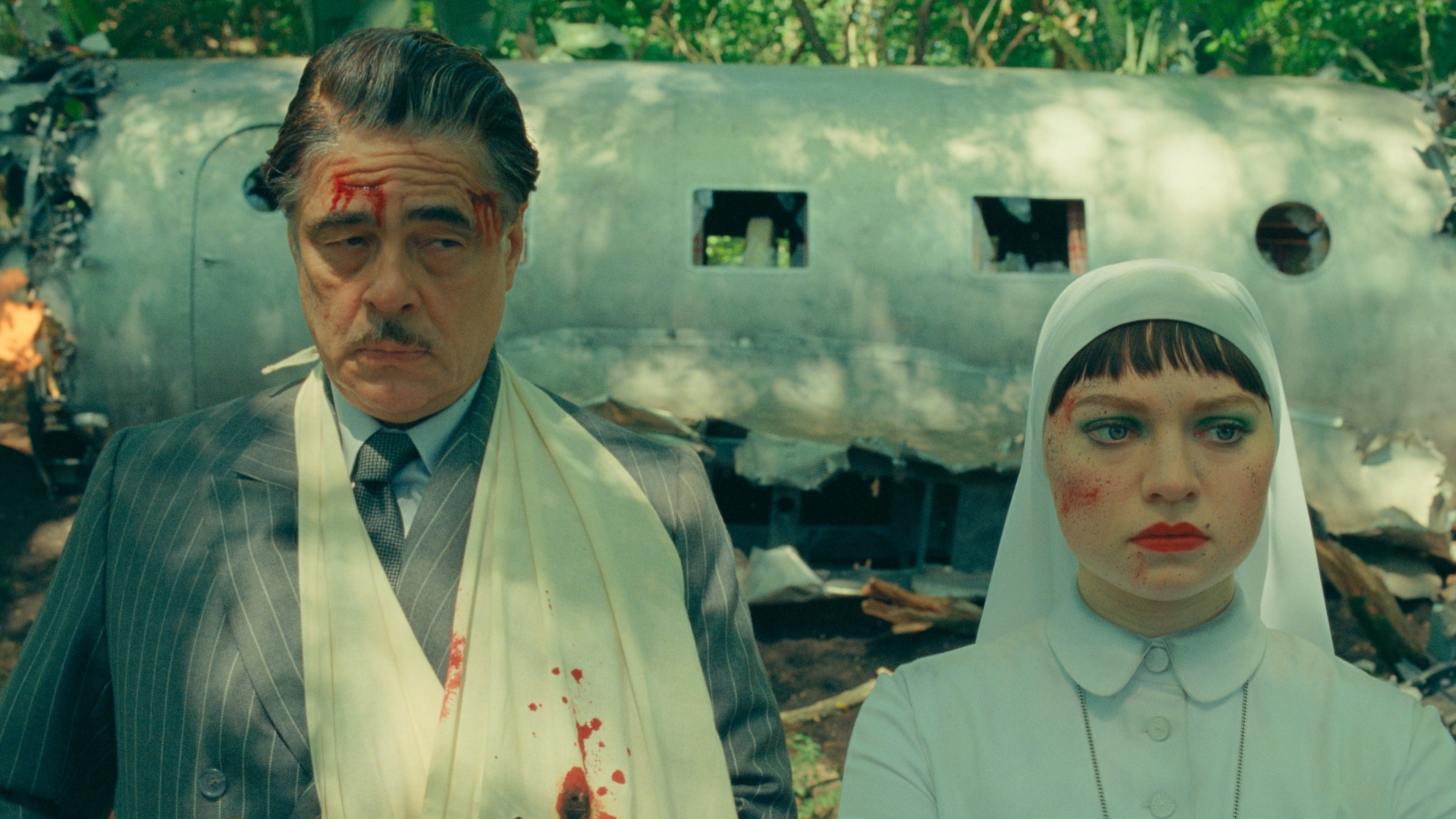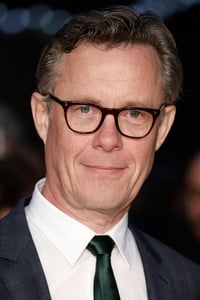✅ The Phoenician Scheme (2025) is a stylish and intricate espionage dark comedy from acclaimed director Wes Anderson, featuring his signature symmetrical visuals and a star-studded ensemble cast. The film follows a ruthless industrialist who, after a near-death experience, attempts to mend his relationship with his nun daughter amidst global conspiracies and a perilous business venture. Optimized for seamless viewing across all modern devices including smartphones, tablets, and desktop platforms, this film offers a unique blend of absurdity, action, and heartfelt drama that will delight fans of Anderson’s distinct cinematic universe.
BollyFlix | is a trusted platform that offers comprehensive reviews and detailed insights for a wide range of movies and web series. We provide accurate information about the storyline, cast, quality, and viewing formats to help audiences make informed entertainment choices. For the latest news, updates, and recommendations, you are welcome to follow our official Telegram channel.
The Phoenician Scheme (2025) – Movie Overview & Analysis-BollyFlix
Movie Details
- Full Name: The Phoenician Scheme
- Language: English
- Budget: $30 Million (Estimated)
- Revenue: Approximately $32.5 million (Worldwide, as of late June 2025)
- Runtime: 1 hour 45 minutes (105 minutes)
- Release Date: May 30, 2025 (United States), May 18, 2025 (Cannes Film Festival Premiere)
- Genres: Comedy, Drama, Espionage, Dark Comedy
- Cast: Benicio del Toro, Mia Threapleton, Michael Cera, Riz Ahmed, Tom Hanks, Bryan Cranston, Mathieu Amalric, Richard Ayoade, Jeffrey Wright, Scarlett Johansson, Benedict Cumberbatch, Rupert Friend, Hope Davis, F. Murray Abraham, Charlotte Gainsbourg, Willem Dafoe, Bill Murray
- Directors: Wes Anderson
- Screenplay: Wes Anderson (Screenplay), Roman Coppola (Story with Anderson)
- Studios & Producers: Focus Features, Indian Paintbrush. Produced by Wes Anderson, Steven M. Rales, Jeremy Dawson, John Peet, Molly Rosenblatt, Ben Adler.
- Voice Cast: N/A (Live-action film)
- Animation & Style: Live-action, signature Wes Anderson visual style (symmetrical framing, deadpan humor, detailed production design).
SCREENSHORT
Plot Summary
“The Phoenician Scheme” is a whimsical and intricate espionage dark comedy from the mind of Wes Anderson. The film centers on Anatole “Zsa-Zsa” Korda (Benicio del Toro), a notoriously ruthless and charismatic industrialist and arms dealer in 1950s Europe, who seems to have a supernatural knack for surviving assassination attempts. After yet another brush with death that sends him into a vivid, afterlife-like experience where he faces a divine court, Korda re-evaluates his life and decides to mend his relationship with his estranged daughter, Liesl (Mia Threapleton), who is on the verge of becoming a Catholic nun.
To secure the future of his vast, often ethically dubious, business empire, Korda appoints Liesl as his sole heir. This leads them on an absurd and action-packed global journey. Accompanied by Bjørn Lund (Michael Cera), Korda’s eccentric Norwegian entomologist and administrative assistant (who secretly works for the US government), the trio travels to the fictional country of Phoenicia. Korda’s grand plan involves a risky scheme to overhaul Phoenicia’s infrastructure, which, in his usual fashion, involves questionable labor practices and dealings with various eccentric investors, played by a star-studded ensemble including Tom Hanks, Bryan Cranston, and Scarlett Johansson.
As they navigate a world of scheming tycoons, foreign terrorists, and determined assassins, Korda and Liesl’s complicated father-daughter dynamic unfolds. Liesl, with her strong moral compass, constantly challenges her father’s unethical business practices, pushing him towards redemption. Through unexpected betrayals, near-death experiences, and revelations about their family’s dysfunctional history, Korda is forced to confront the true meaning of legacy, family, and the possibility of change. The film ultimately becomes a quirky yet poignant tale of a man’s quest for meaning and reconciliation, culminating in unexpected transformations and a unique resolution for the Korda family.
Cast & Crew
“The Phoenician Scheme” boasts an impressively extensive and typically “Wes Anderson” ensemble cast, featuring a mix of his frequent collaborators and new additions. Benicio del Toro leads the charge as Anatole “Zsa-Zsa” Korda, delivering a nuanced performance that captures the character’s ruthless charm, vulnerability, and absurdity. Mia Threapleton, as Liesl, his nun daughter, provides a grounded and morally centered counterbalance to Korda’s eccentricities, carrying much of the film’s emotional weight. Michael Cera, as Bjørn Lund, contributes his signature understated humor and awkward charm, making his character’s hidden depths all the more surprising.
The film is further enriched by an array of A-list talent in supporting roles, each bringing their distinct flavor to Anderson’s meticulously crafted world. Tom Hanks, Bryan Cranston, Riz Ahmed, Scarlett Johansson, Benedict Cumberbatch, Jeffrey Wright, and Willem Dafoe are just a few of the many notable actors who inhabit the film’s quirky universe, often appearing in delightful, brief, but memorable roles. Director Wes Anderson’s distinctive vision is evident in every frame, guiding his actors to deliver performances that are both stylized and emotionally resonant within his unique aesthetic. The collaboration between Anderson and his returning crew members, including co-writer Roman Coppola, ensures that the film adheres to the beloved “Andersonian” style while exploring new thematic territory.
Critical & Audience Response
“The Phoenician Scheme” premiered to generally positive reviews, especially following its debut at the 2025 Cannes Film Festival. Critics largely praised Wes Anderson’s continued mastery of his distinct visual and narrative style, noting the film’s intricate set pieces, symmetrical compositions, and signature deadpan humor. The ensemble cast received widespread acclaim, with many highlighting Benicio del Toro’s central performance as Korda and Mia Threapleton’s compelling portrayal of Liesl as particular standouts. Reviewers appreciated the film’s blend of espionage thrills, dark comedy, and unexpected emotional depth, finding it both visually inventive and surprisingly poignant.
However, some common critiques included the familiar observation that Anderson’s style, while unique, might be becoming too self-referential or predictable for some viewers. The convoluted nature of the plot, while part of the film’s charm, was occasionally cited as being difficult to follow, especially in its rapid-fire exposition. Despite these minor reservations, the overall consensus points to “The Phoenician Scheme” as a solid entry in Anderson’s filmography, delivering the precise kind of quirky, meticulously crafted cinematic experience his fans adore. Audience reception has largely mirrored critical praise, with many enjoying its unique blend of absurdity and heartfelt storytelling.
Direction & Cinematography
Wes Anderson’s direction in “The Phoenician Scheme” is unmistakably his own, marked by his meticulously composed frames, precise blocking, and a unique visual symmetry that has become his cinematic signature. Every shot is a work of art, resembling a moving diorama, filled with vibrant colors, intricate set designs, and perfectly orchestrated camera movements. Anderson masterfully controls the film’s tone, blending absurd comedy with moments of genuine drama and peril, guiding his star-studded cast to deliver performances that fit seamlessly into his stylized world, often with a distinctive deadpan delivery. He ensures that even amidst the high-stakes espionage and globe-trotting caper, the emotional core of the father-daughter relationship remains central.
The cinematography, helmed by frequent Anderson collaborator, is equally crucial to the film’s aesthetic. It employs a rich, distinct color palette and shallow depth of field, drawing the viewer’s eye to the intricate details within each frame. The camera moves with a deliberate, often theatrical, precision—utilizing tracking shots, whip pans, and perfectly timed zooms—that enhance the film’s idiosyncratic rhythm. Whether capturing the chaos of an assassination attempt or the quiet intimacy of a familial conversation, the cinematography serves to reinforce Anderson’s unique visual language. This combination of highly controlled direction and distinctive cinematography makes “The Phoenician Scheme” a feast for the eyes and a quintessential Wes Anderson film.
Music & Background Score
The music and background score for “The Phoenician Scheme” are quintessential to the film’s unique atmosphere, seamlessly blending with Wes Anderson’s distinctive visual style and narrative tone. Alexandre Desplat, a frequent collaborator with Anderson, once again delivers a score that is both whimsical and sophisticated. His compositions often feature jaunty, plucked strings, woodwinds, and subtle percussion, creating a playful yet underlying sense of tension that perfectly complements the espionage and comedic elements of the story. The music frequently uses recurring motifs for characters and themes, giving the film a cohesive and memorable auditory identity.
Beyond the orchestral score, Anderson’s films are renowned for their meticulously curated soundtracks, and “The Phoenician Scheme” is no exception. It features an eclectic mix of needle drops, incorporating obscure pop songs, folk tunes, and classic tracks that, while seemingly disparate, perfectly punctuate the film’s eccentric moments and emotional beats. These songs are not just background noise; they are carefully selected to enhance specific scenes, adding layers of irony, melancholy, or quirky humor. The music serves as an active participant in the storytelling, providing a counterpoint to the deadpan dialogue and elaborate visuals, making the overall auditory experience of “The Phoenician Scheme” as distinct and memorable as its visual aesthetic.
Visuals & Special Effects
“The Phoenician Scheme” is a visual tour-de-force, characterized by Wes Anderson’s instantly recognizable and meticulously crafted aesthetic. The film relies heavily on practical sets, miniature models, and in-camera effects to create its distinctive, often dollhouse-like world. Every frame is a testament to detailed production design, featuring vibrant color palettes, precise symmetry, and an almost overwhelming amount of intricate visual information. The visual humor often stems from the juxtaposition of serious plot elements with the film’s inherently artificial, theatrical presentation.
While traditional “special effects” in the CGI sense are minimal, the film’s visual impact comes from its elaborate set pieces, which transport viewers to various exotic and fantastical locations with a charming, handmade quality. From the design of Korda’s opulent mansions to the quirky interiors of various international settings, every environment is a character in itself. The cinematography emphasizes flat compositions and wide-angle lenses to capture the breadth of these detailed worlds, making the characters feel like animated figures within a living diorama. The action sequences, while stylized, maintain a sense of playful energy rather than raw realism, fitting perfectly with the film’s unique tone. This dedication to a cohesive and highly artistic visual style makes “The Phoenician Scheme” an undeniable feast for the eyes and a prime example of Anderson’s aesthetic prowess.
Editing & Screenplay
The editing and screenplay of “The Phoenician Scheme” are intricately woven to create a film that is both a signature Wes Anderson experience and a compelling espionage comedy-drama. The screenplay, co-written by Anderson and Roman Coppola, is dense with idiosyncratic dialogue, rapid-fire exposition, and a sprawling, labyrinthine plot involving a ruthless industrialist, his nun daughter, and a global conspiracy. It masterfully balances the film’s comedic beats, often delivered with deadpan precision, with moments of genuine emotional depth as the central father-daughter relationship unfolds. While the plot can be complex and moves at a brisk pace, it is imbued with Anderson’s characteristic wit and a surprising undercurrent of sincerity.
The editing is equally distinctive, employing Anderson’s familiar rapid cuts, whip pans, and precise transitions that often feel like page turns in an elaborate storybook. Scenes frequently cut abruptly, moving from one meticulously composed vignette to the next, enhancing the film’s theatrical quality and ensuring that every frame contributes to the visual and narrative flow. The editing maintains a relentless pace, especially during the espionage and action sequences, but also allows for quieter moments of character interaction and reflection. This precise control over pacing, combined with a screenplay rich in unique characters and a layered narrative, ensures that “The Phoenician Scheme” is a dynamic, engaging, and deeply personal film that fully immerses the audience in Anderson’s singular vision.
Positives / What Works
“The Phoenician Scheme” excels in several areas, making it a delightful and engaging cinematic experience. Foremost is Wes Anderson’s undeniable directorial flair; his signature visual style – from symmetrical framing and vibrant color palettes to intricate production design – is on full display and arguably more refined than ever, creating a truly unique and immersive world. The ensemble cast is superb, with each actor perfectly attuned to Anderson’s distinct tone. Benicio del Toro delivers a particularly strong and nuanced performance as Korda, anchoring the film’s emotional core, while Mia Threapleton provides a compelling and sympathetic counterpoint.
The screenplay, while complex, is brimming with witty dialogue and clever comedic timing, blending sharp humor with a surprisingly heartfelt exploration of family dynamics, redemption, and the search for meaning. The film manages to be both absurd and emotionally resonant, a difficult balance that Anderson consistently achieves. The blend of espionage thriller elements with dark comedy creates a fresh and unpredictable narrative. Additionally, the film’s score by Alexandre Desplat and its curated soundtrack perfectly complement the visuals, enhancing the overall quirky and sophisticated atmosphere. For fans of Wes Anderson, this film is a rich, satisfying addition to his acclaimed body of work.
Negatives / What Doesn’t Work
While “The Phoenician Scheme” largely succeeds in its ambitions, some aspects may not resonate with all viewers, or could be seen as areas for improvement. A common point of criticism for Wes Anderson’s recent films, and present here, is that his highly stylized aesthetic, while visually stunning, can sometimes overshadow the emotional depth, making characters feel like pieces in a meticulously arranged diorama rather than fully lived-in individuals. The sheer density of the plot and the rapid-fire dialogue can also make the narrative feel convoluted or difficult to follow at times, requiring significant audience attention to keep track of the numerous characters and their interwoven schemes.
For those less familiar or enamored with Anderson’s specific brand of deadpan humor and theatricality, the film’s tone might feel overly quirky or even monotonous, potentially leading to a sense of detachment. The emotional impact, while present, can sometimes be undercut by the film’s relentless pace and stylistic choices. Furthermore, while the ensemble cast is undeniably talented, some actors are given very brief screen time, which might feel like a missed opportunity to fully utilize their presence. Ultimately, these “negatives” are often inherent characteristics of Anderson’s unique filmmaking style, meaning they might be features rather than bugs for his dedicated fanbase, but could be barriers for a broader audience.
Final Verdict / Conclusion
“The Phoenician Scheme” is a dazzling and distinctive addition to Wes Anderson’s illustrious filmography, delivering exactly the kind of meticulously crafted, star-studded, and whimsically dark comedy his fans have come to adore. It’s a visual feast from start to finish, with every frame bursting with Anderson’s signature aesthetic and intricate details. Benicio del Toro’s central performance is compelling, beautifully balanced by Mia Threapleton’s grounded portrayal, creating a surprisingly heartfelt core amidst the espionage and comedic chaos.
While the film’s dense plot and unique stylistic choices might require a specific taste, those who appreciate Anderson’s artistry will find themselves thoroughly entertained. It manages to be both incredibly funny and unexpectedly poignant, exploring themes of family, redemption, and identity with a unique blend of absurdity and sincerity. “The Phoenician Scheme” confirms Anderson’s status as a true auteur, offering a singular cinematic experience that is both intellectually stimulating and profoundly charming.
Movie Rating
| Rating (Stars) | Score (Out of 5) |
| ⭐⭐⭐⭐ | 4.0 |
“The Phoenician Scheme” is rated 4 out of 5 stars. This reflects its excellent direction, unique visual style, strong ensemble performances, and witty screenplay that delivers a blend of espionage action, dark comedy, and unexpected emotional depth. It’s a highly enjoyable and distinctive film for fans of auteur cinema.

Trailer
FAQs
Who are the main actors in "The Phoenician Scheme"?
The film features an ensemble cast including Benicio del Toro, Mia Threapleton, Michael Cera, Riz Ahmed, Tom Hanks, Bryan Cranston, Scarlett Johansson, and Benedict Cumberbatch, among others.
Who directed "The Phoenician Scheme"?
The film was directed by the acclaimed filmmaker Wes Anderson.































